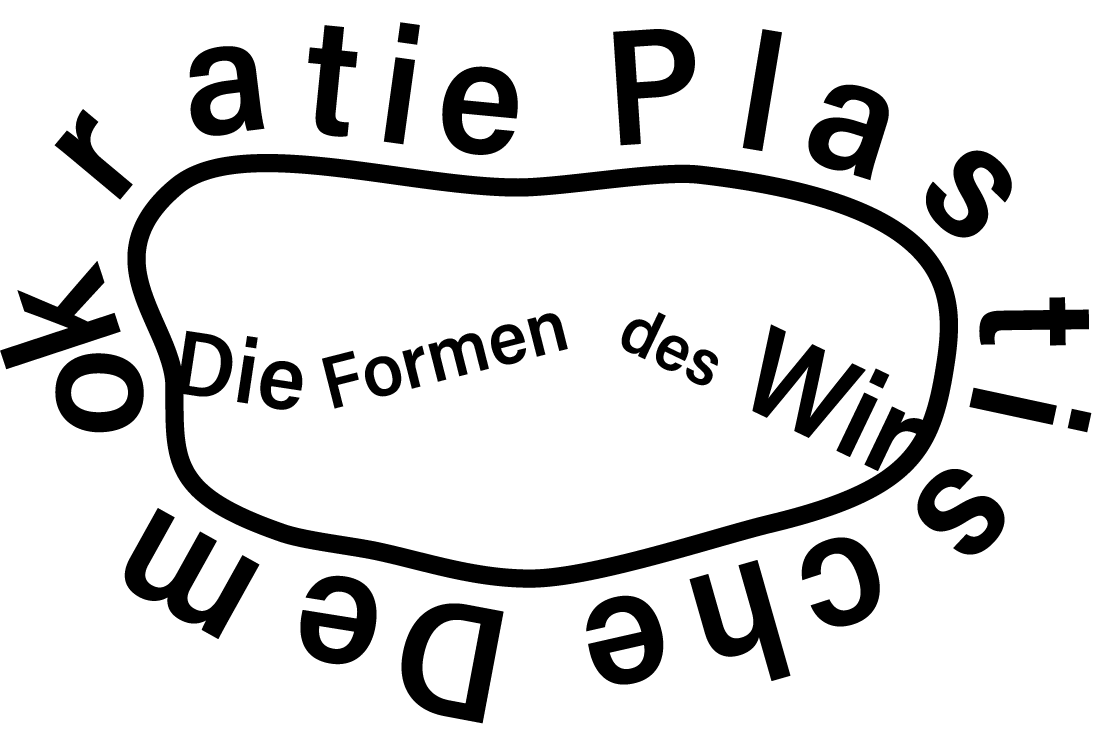
Workshop
TEXT BY COLLECTIF ETC
Our project is about fire.
How can a fire shape forms of the »we«?
How can a fire help to gather people around ideas, desires, conversations?
A fire is a movement, a transformation, as Beuys also used in his performance with machines and natural materials. Much like he might have wanted, we were not given any instructions for shaping the clay.
In fact, we knew nothing about clay. We shared this experiment with the workshop participants as a real process of creativity and joy.
I wasn't sure if I should do it, but Theo asked me to share this quote from the French artist Robert Filliou, founder of Répulique Géniale: »Art is what makes life more interesting than art«.
I think we have tried to respond to this with our discussions. We are not going to write another rambling text here and instead would like to refer to the many interesting talks during the week of the Live-In Lab. We will let you navigate through the narratives that emerged over the course of the week through Marion's drawings and this little »menu du jour« that you have »on your plate« via this page. Keep talking about the fire, because it might make you want to start one.
What we have experienced this week, we now bring to you: Sitting around a fire, sharing a part of our lives with you.
As TOTO, a famous Italian actor, would have said, »If we're going to talk about art and politics, what are we going to eat?«
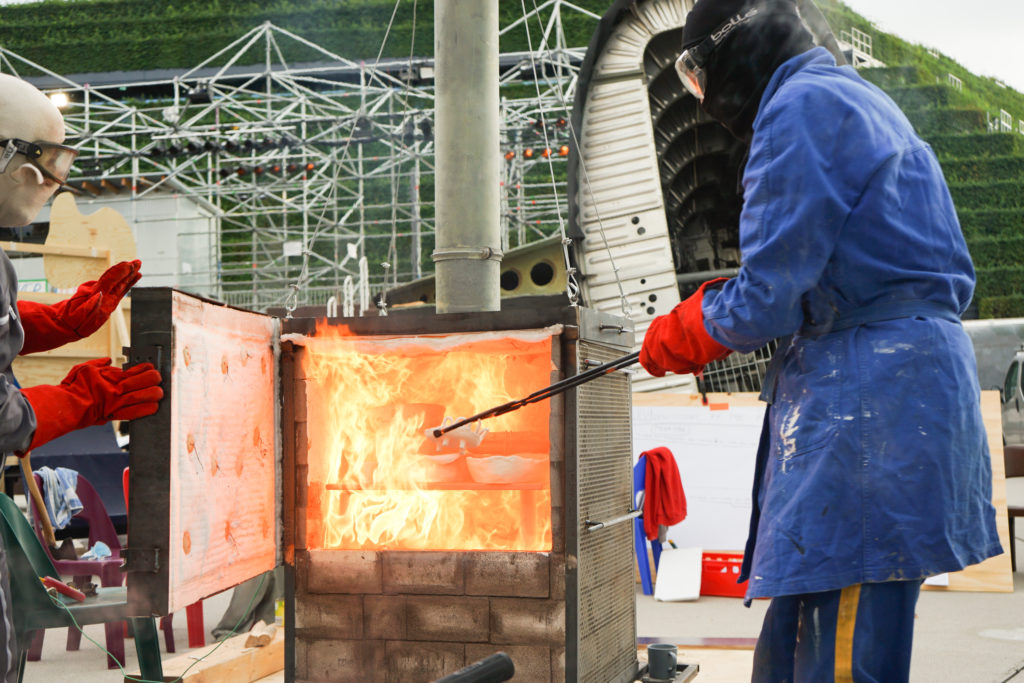
The table-top grills, which they made themselves from clay, are taken out of the kiln. Photo: Collectif Etc
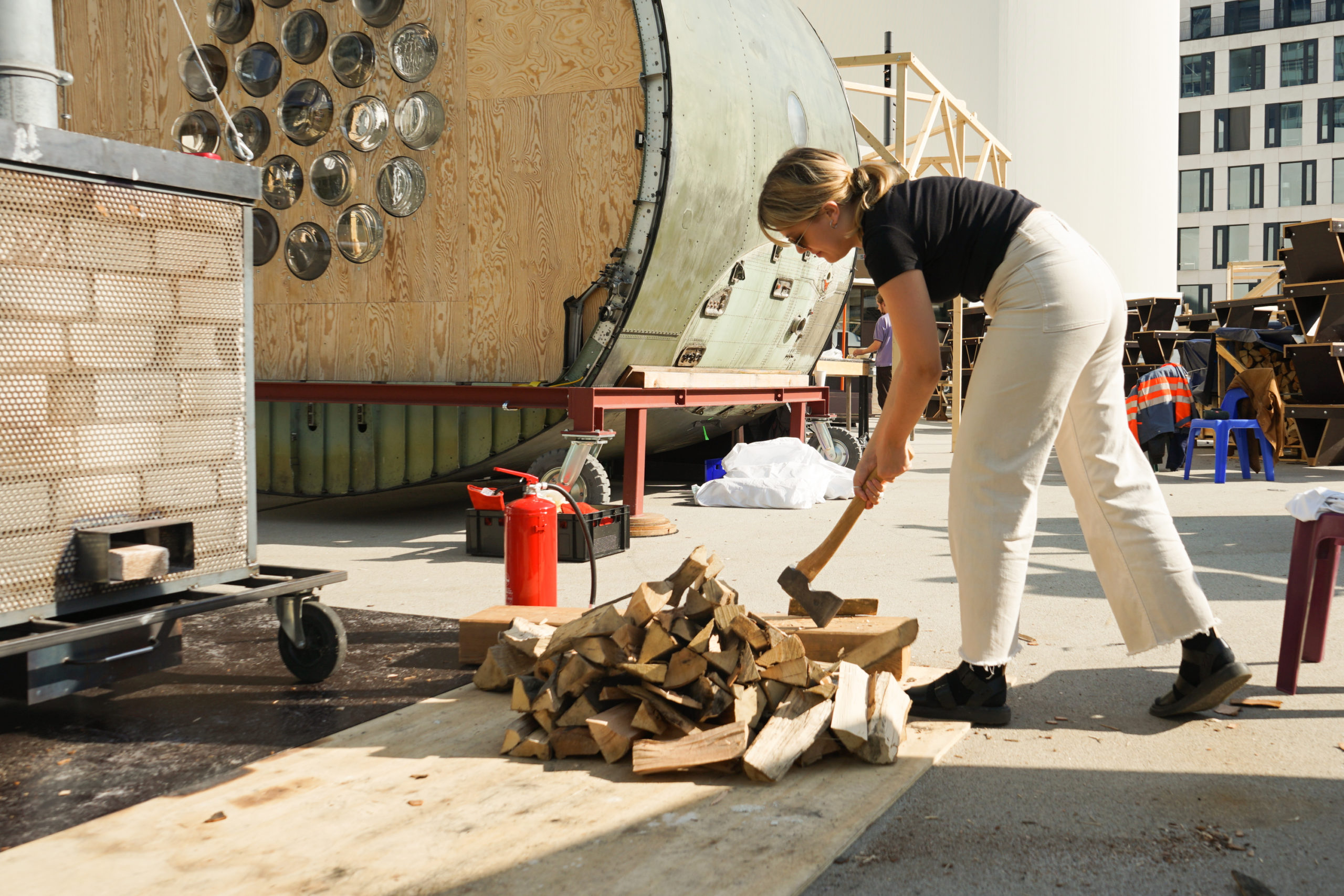
A lot of wood is needed to light the mobile kiln. Photo: Collectif Etc
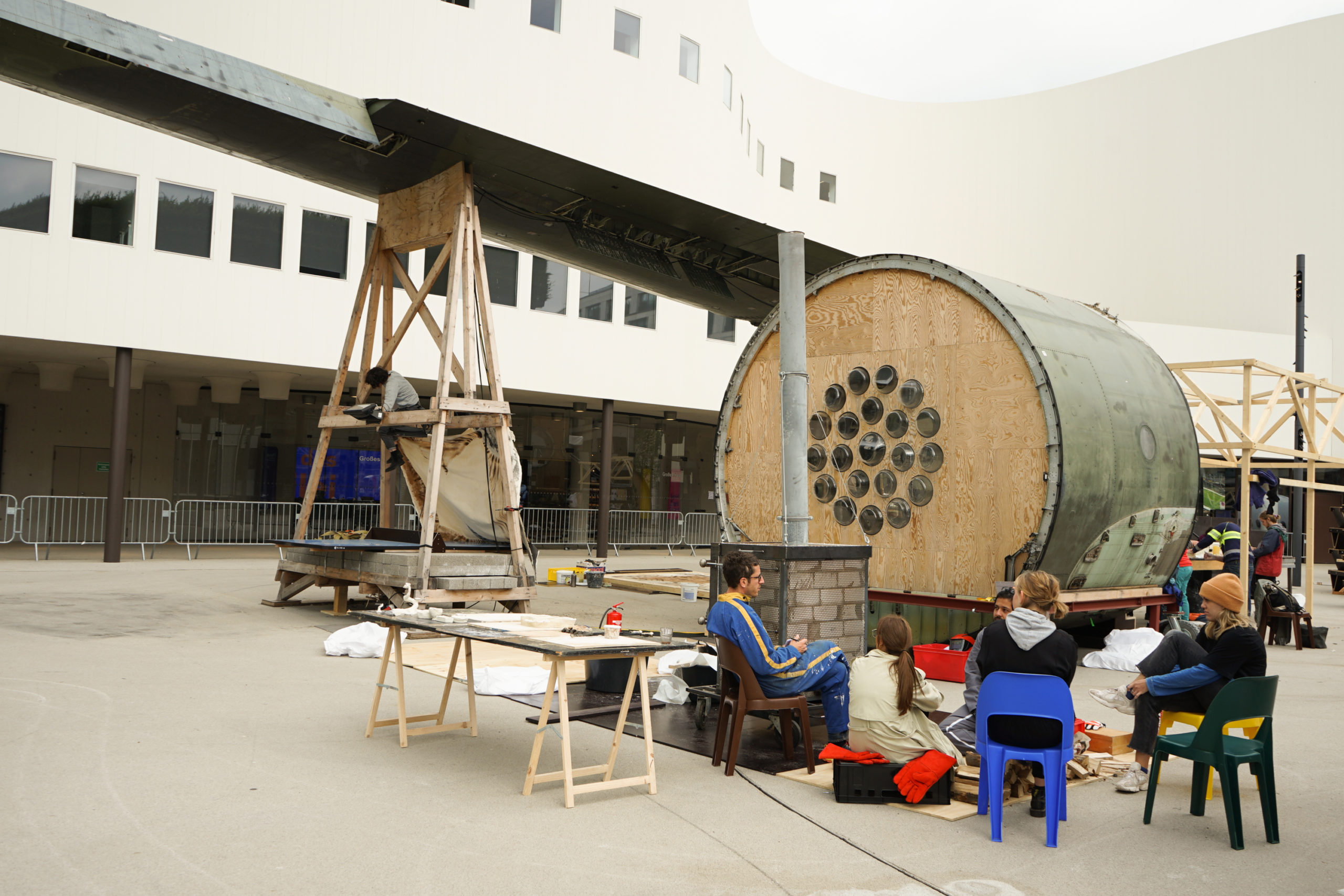
Meeting of the workshop group on Gustaf Grundgens Square around the kiln. Photo: Collectif Etc
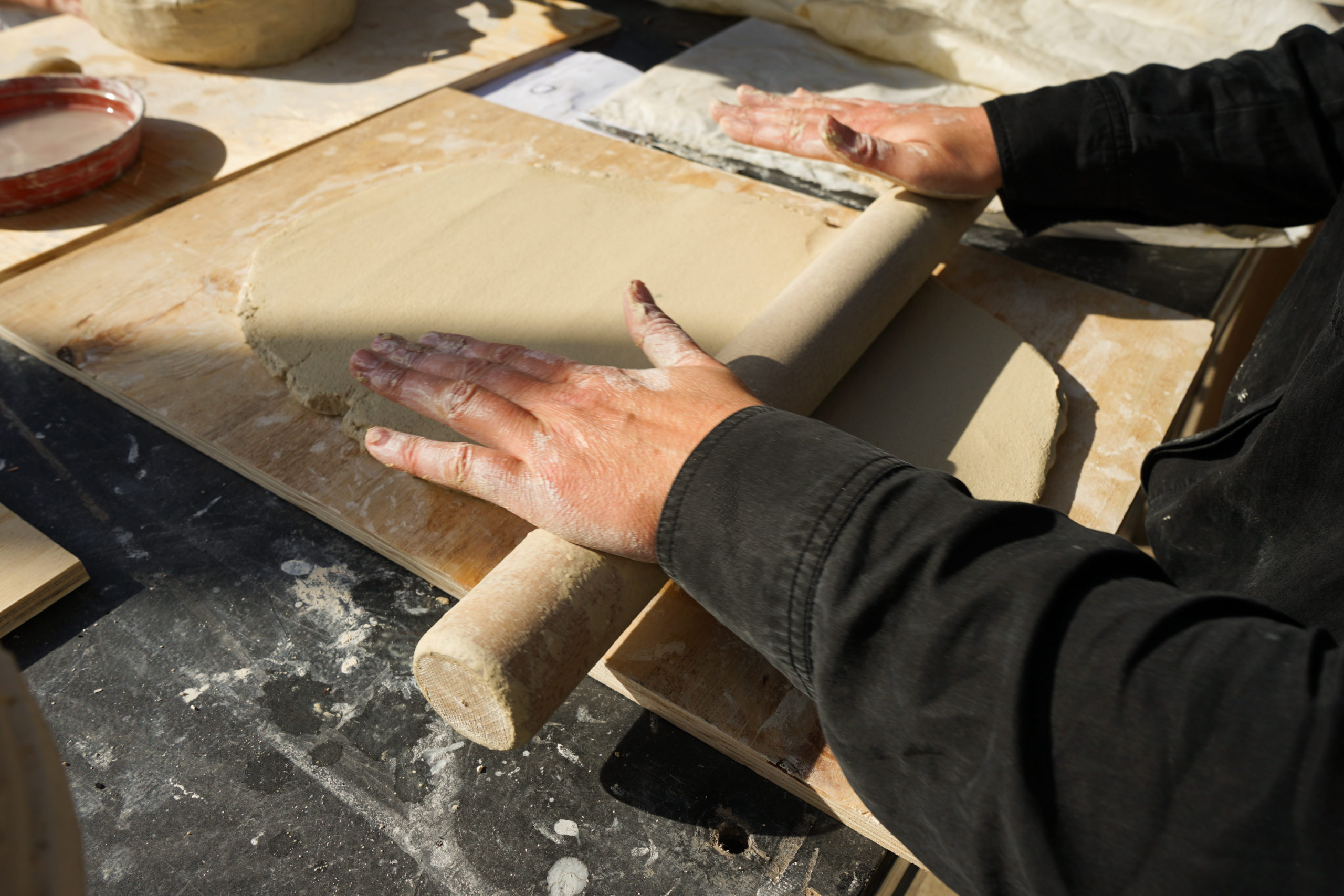
Clay is shaped to make tabletop grills. Photo: Collectiv Etc
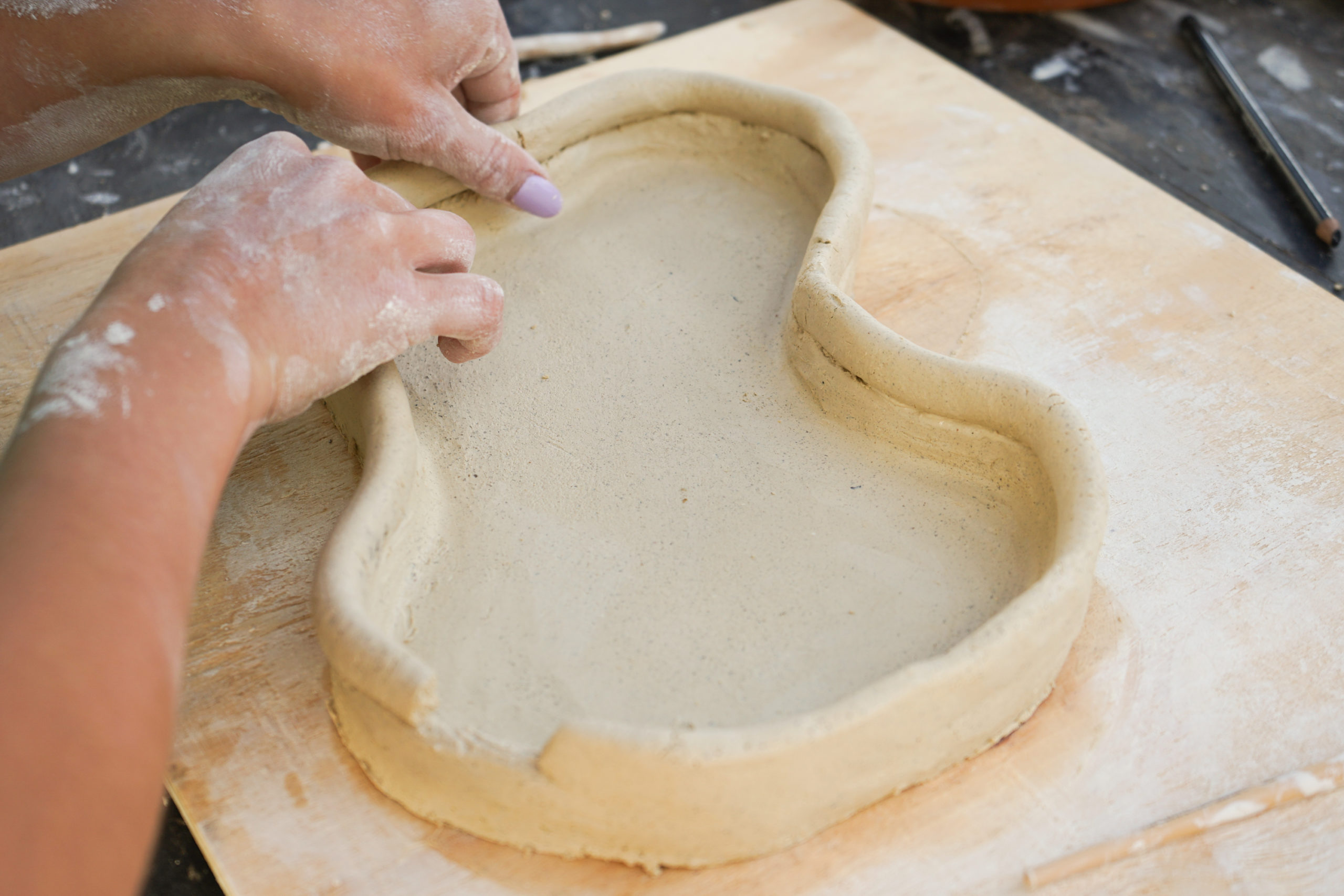
Piece by piece, the side walls of the small grills are built up. Photo: Collectif Etc
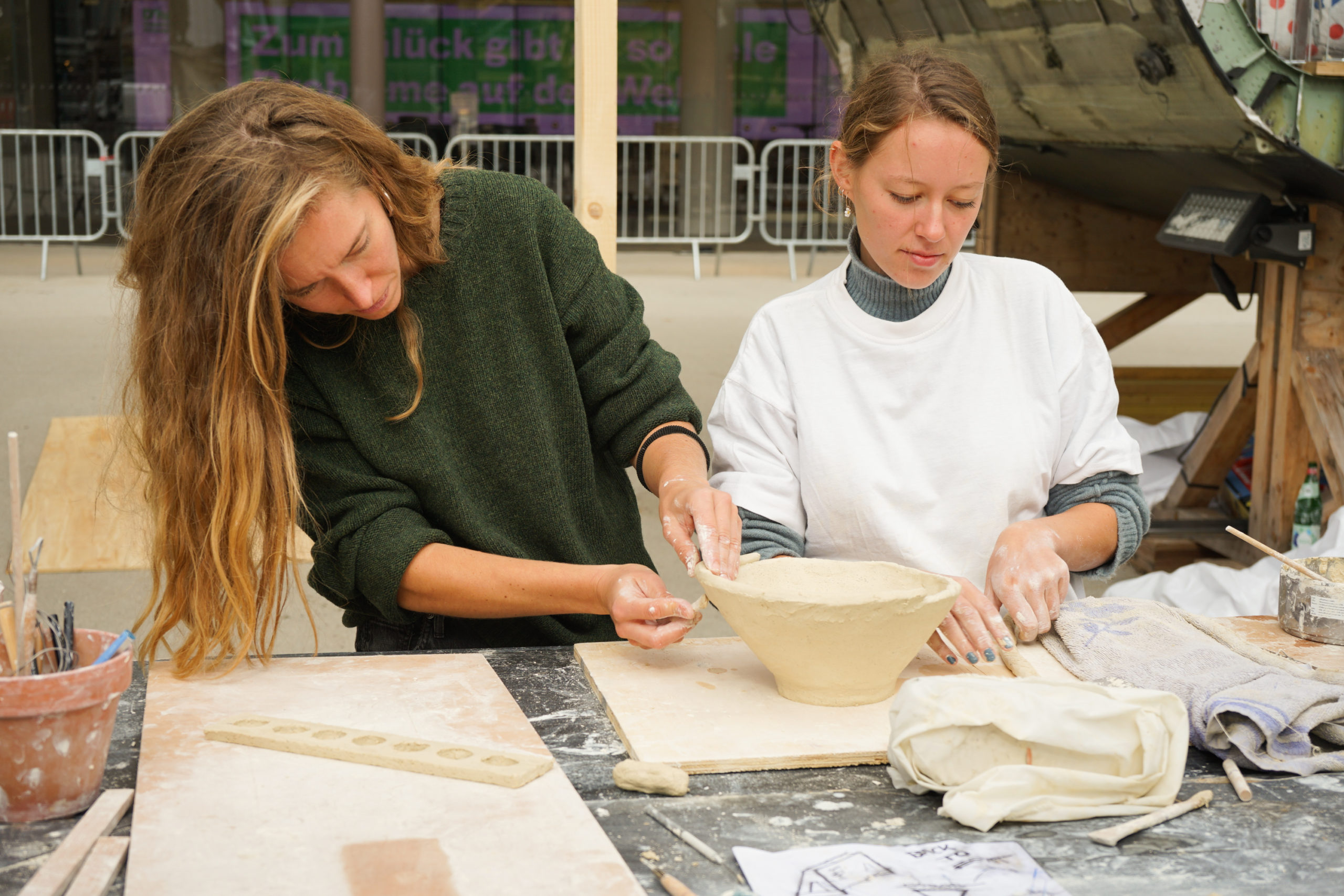
Bowls were also needed for the joint final dinner of the Live-In Lab and were made in the workshop. Photo: Collectiv Etc
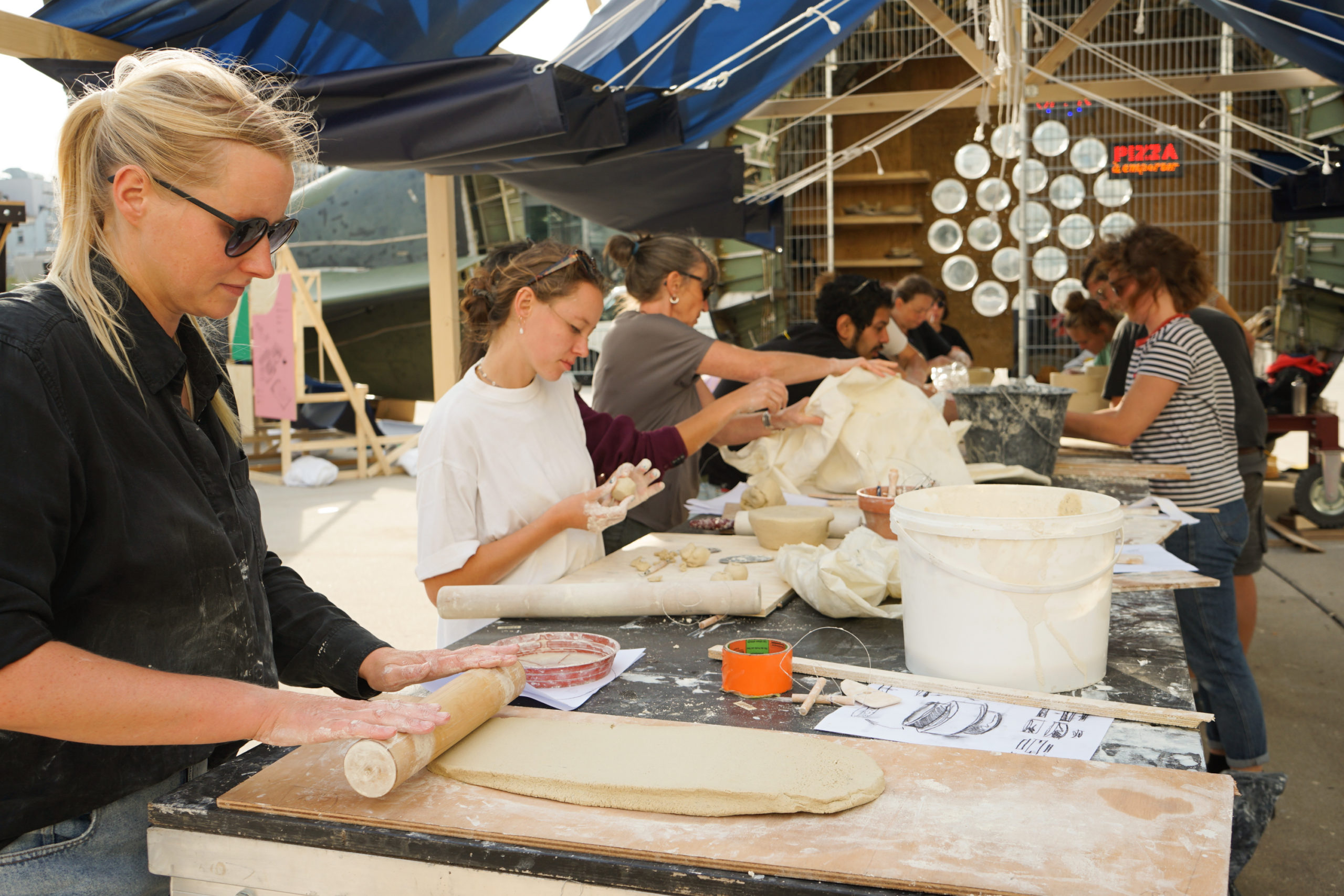
Plenty of sunshine and the experimental setting of raumlaborberlin made the outdoor work on Gustaf-Gründgens-Platz possible. Photo: Collectif Etc
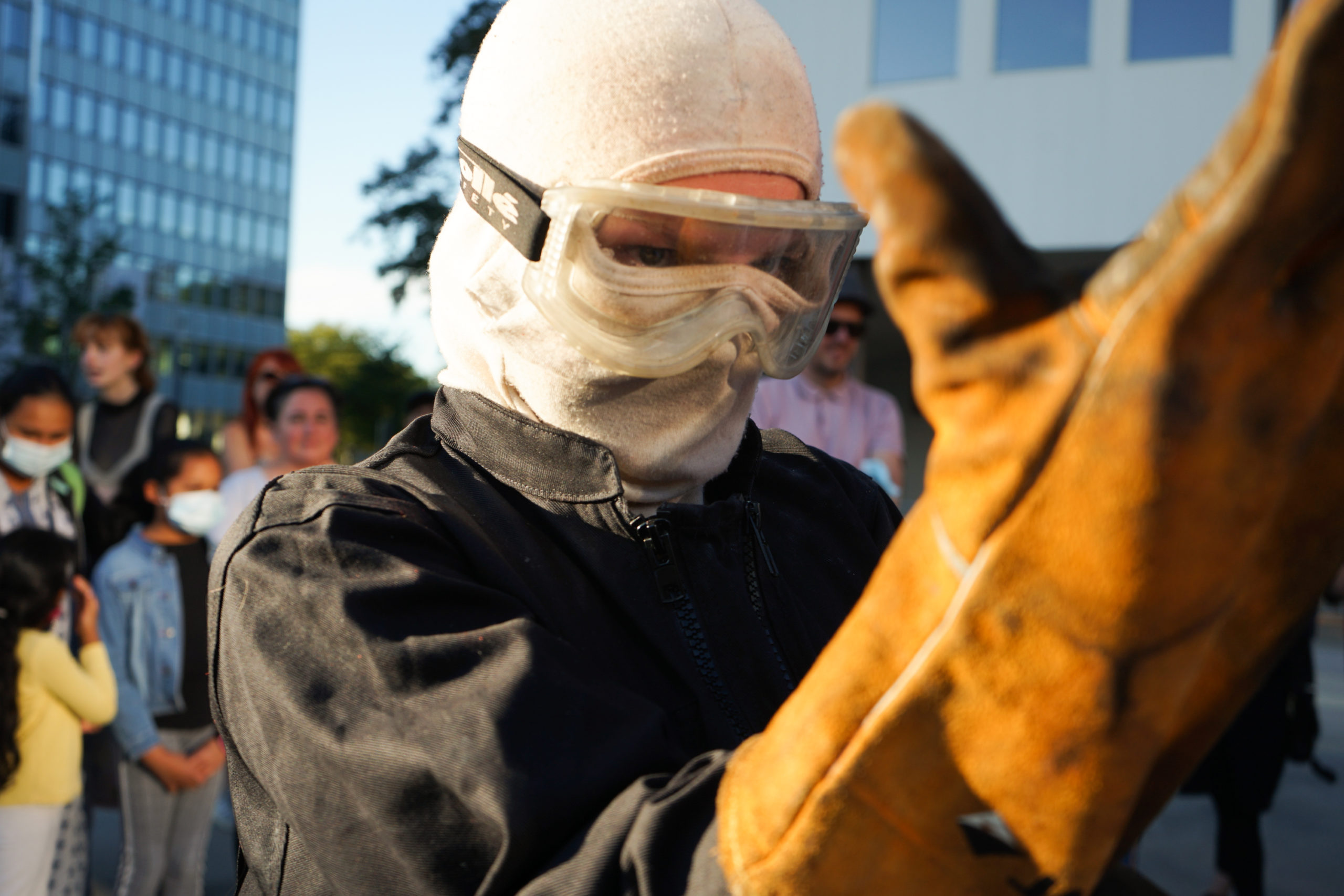
It's time to burn - at 800 degrees Celsius and more, nothing works without protective clothing. Photo: Collectif Etc
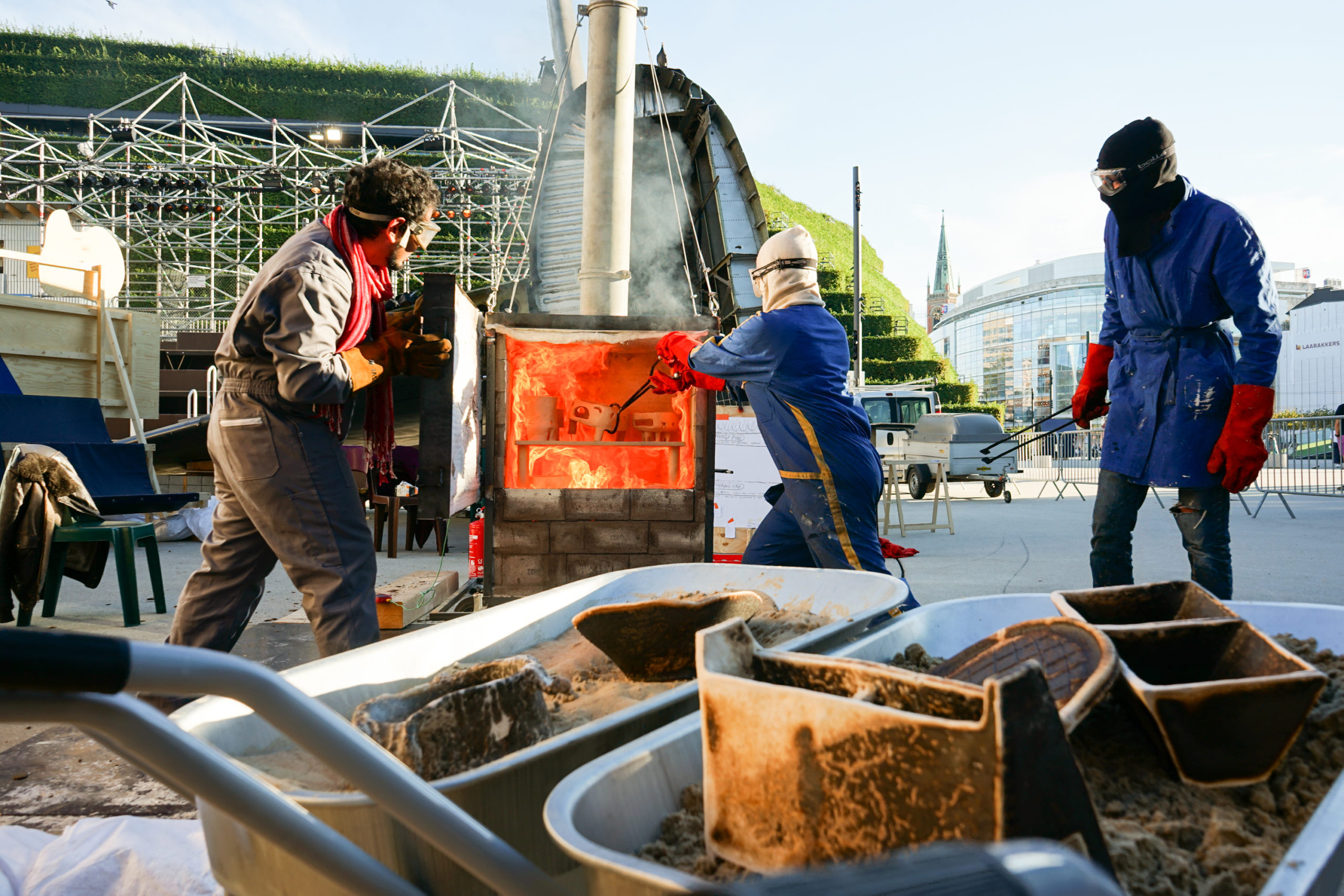
The workshop team in action: To ensure that the heat is not lost in the kiln, the fired vessels have to be brought in and out quickly. The hot workpieces cool down in a sand tub. Photo: Collectif Etc
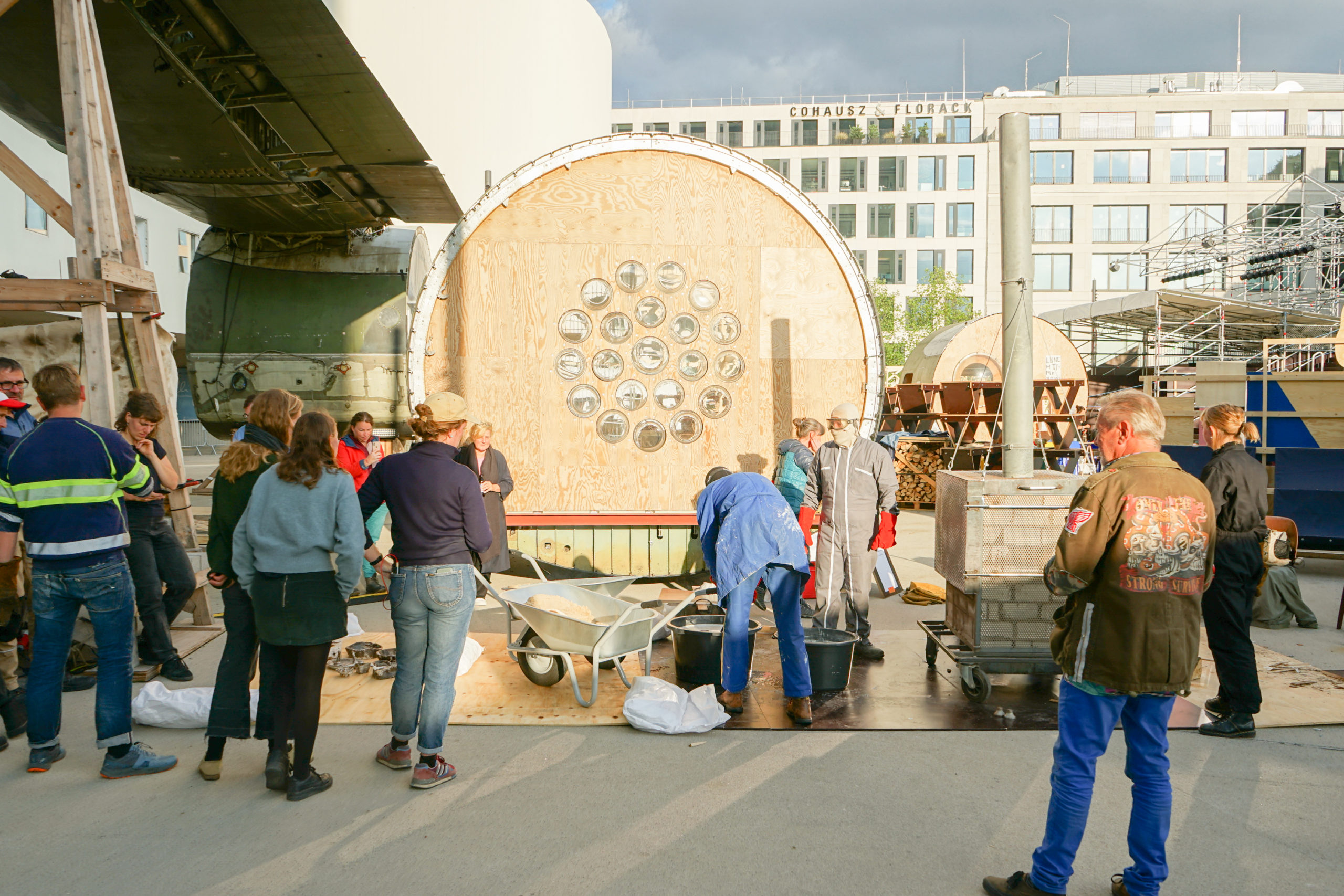
The thickness of the material and the size of the workpiece influence the temperature and the time required for firing - in the Live-In Lab, the firing process was a highlight for workshop participants and the walking public. Photo: Collectif Etc
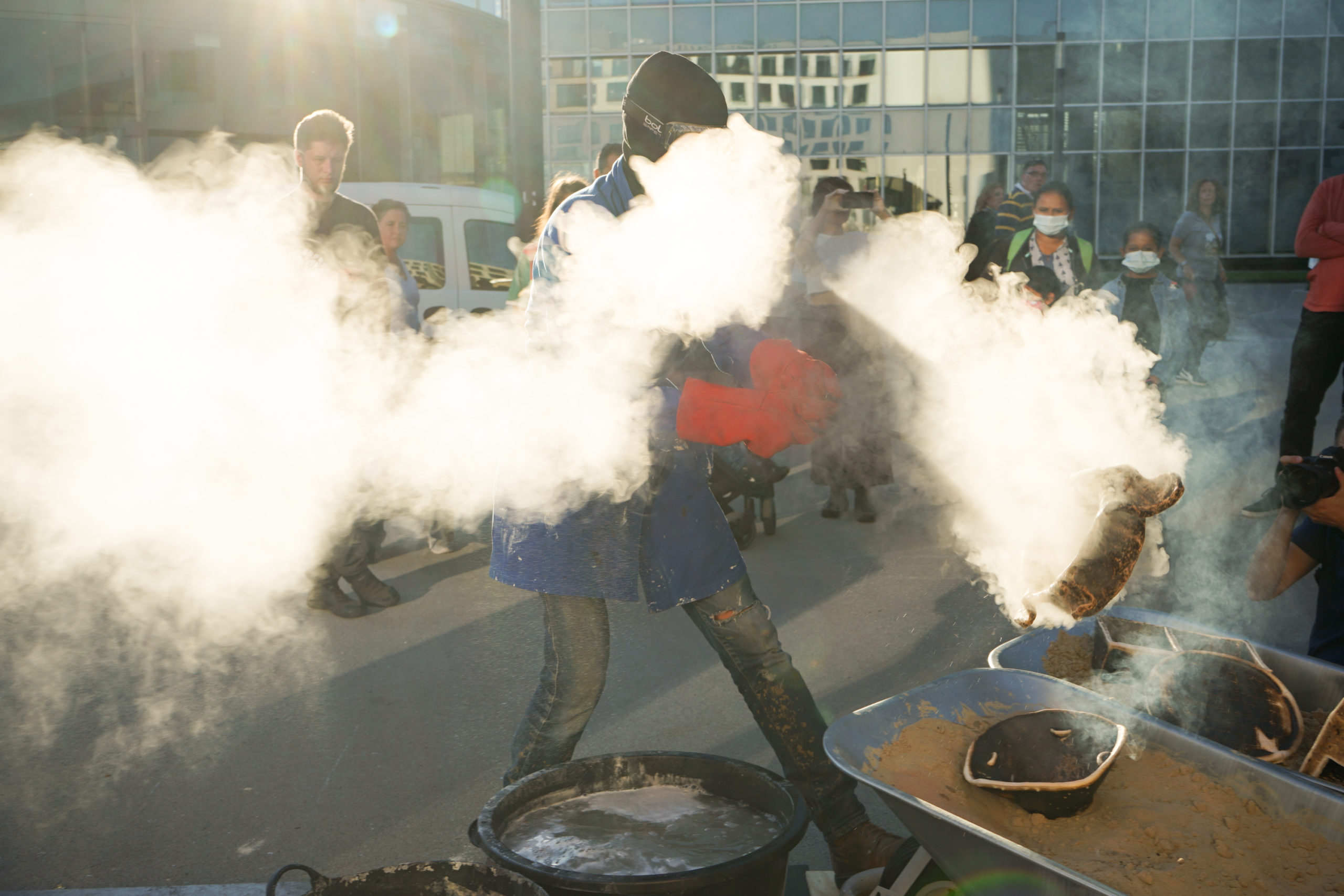
Firing the »naked« clay after modelling and shaping is called raw firing - after firing it has to be quick. Photo: Collectif Etc

The ceramic was cooled in a water bath – the material must survive the extreme temperature change without damage. Photo: Collectif Etc
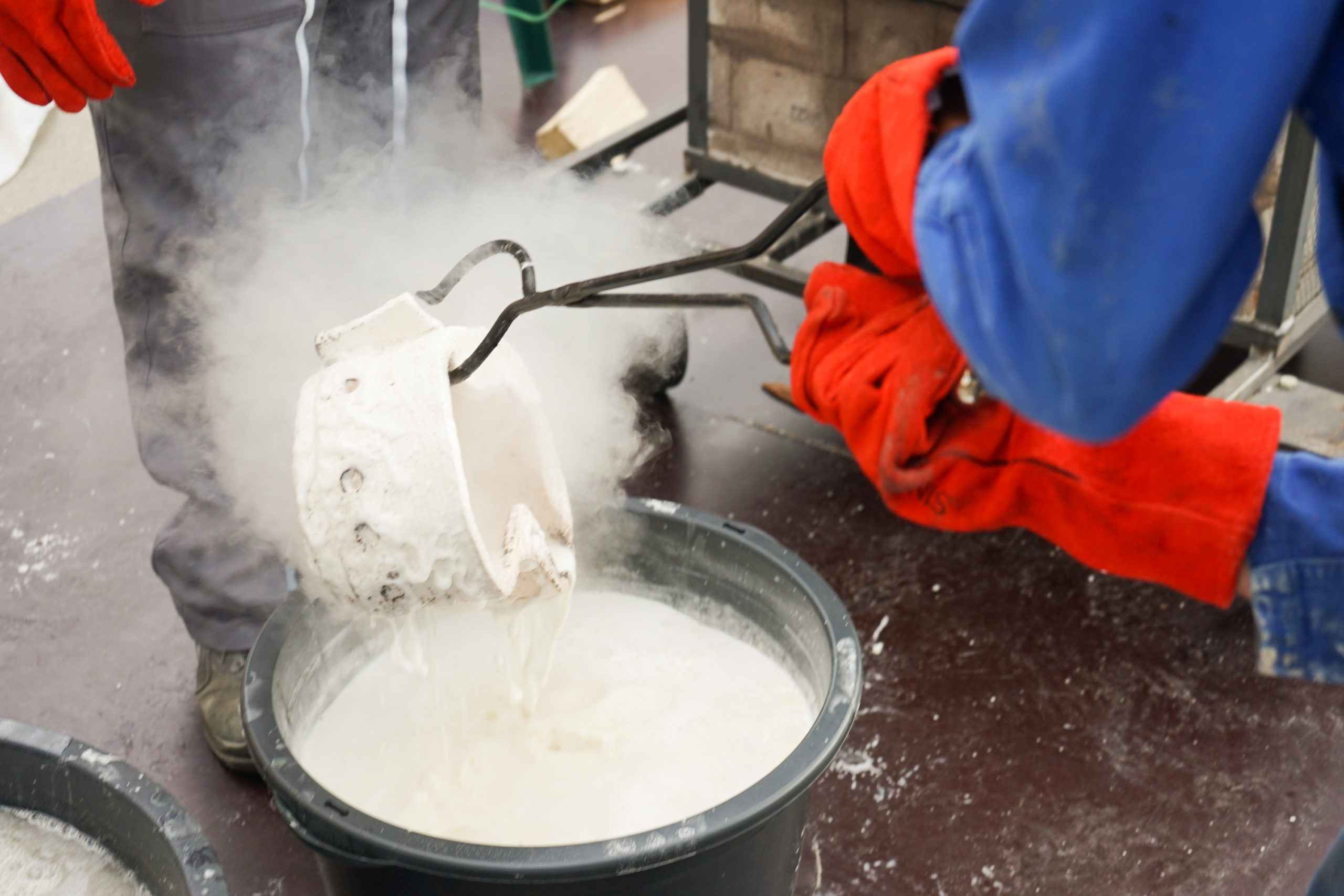
The mineral content in the water influences the later colouring of the vessel. Photo: Collectif Etc
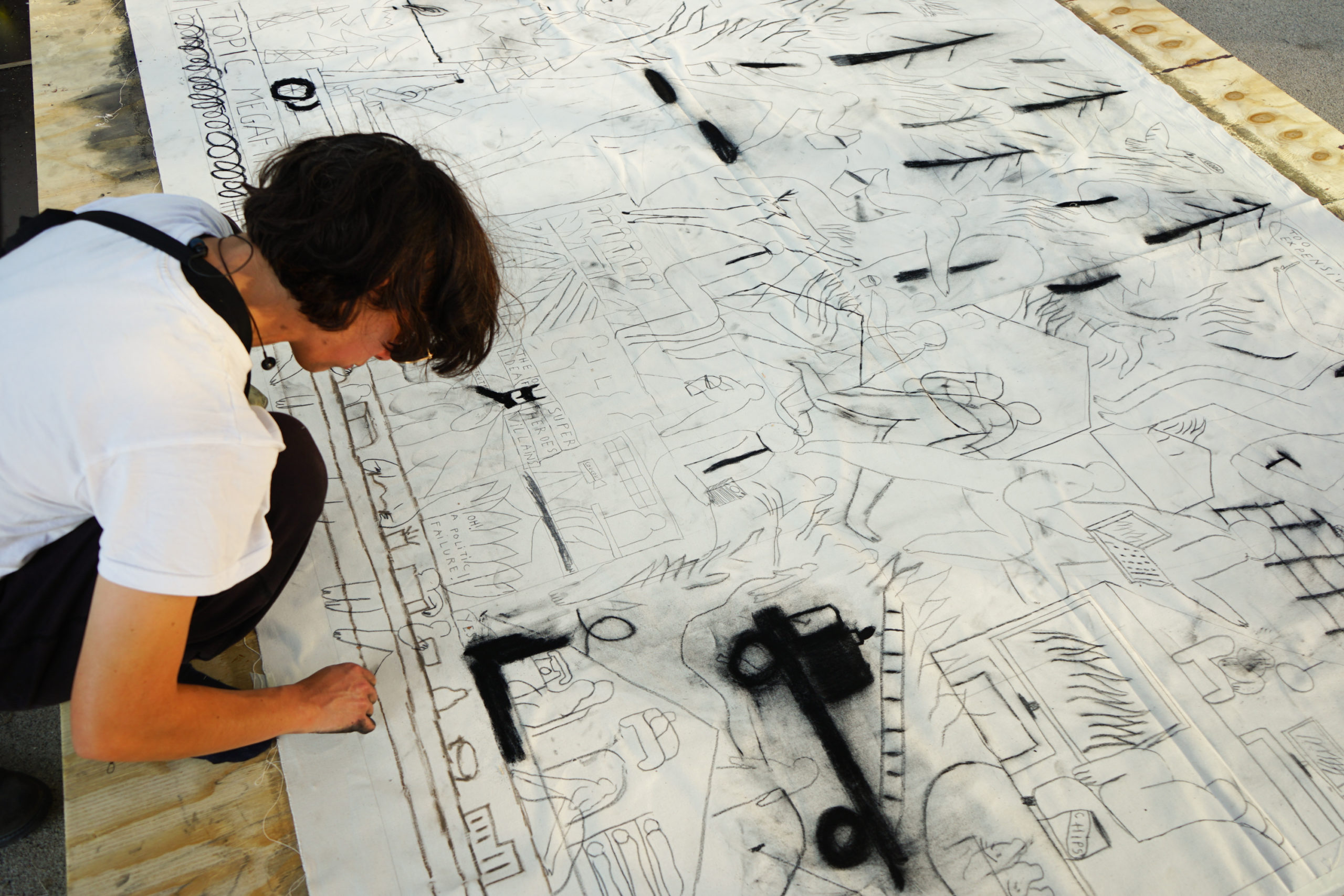
Marion Jdanoff draws with charcoal, a by-product of firing up the kiln, on large-format canvases. Photo: Collectif Etc
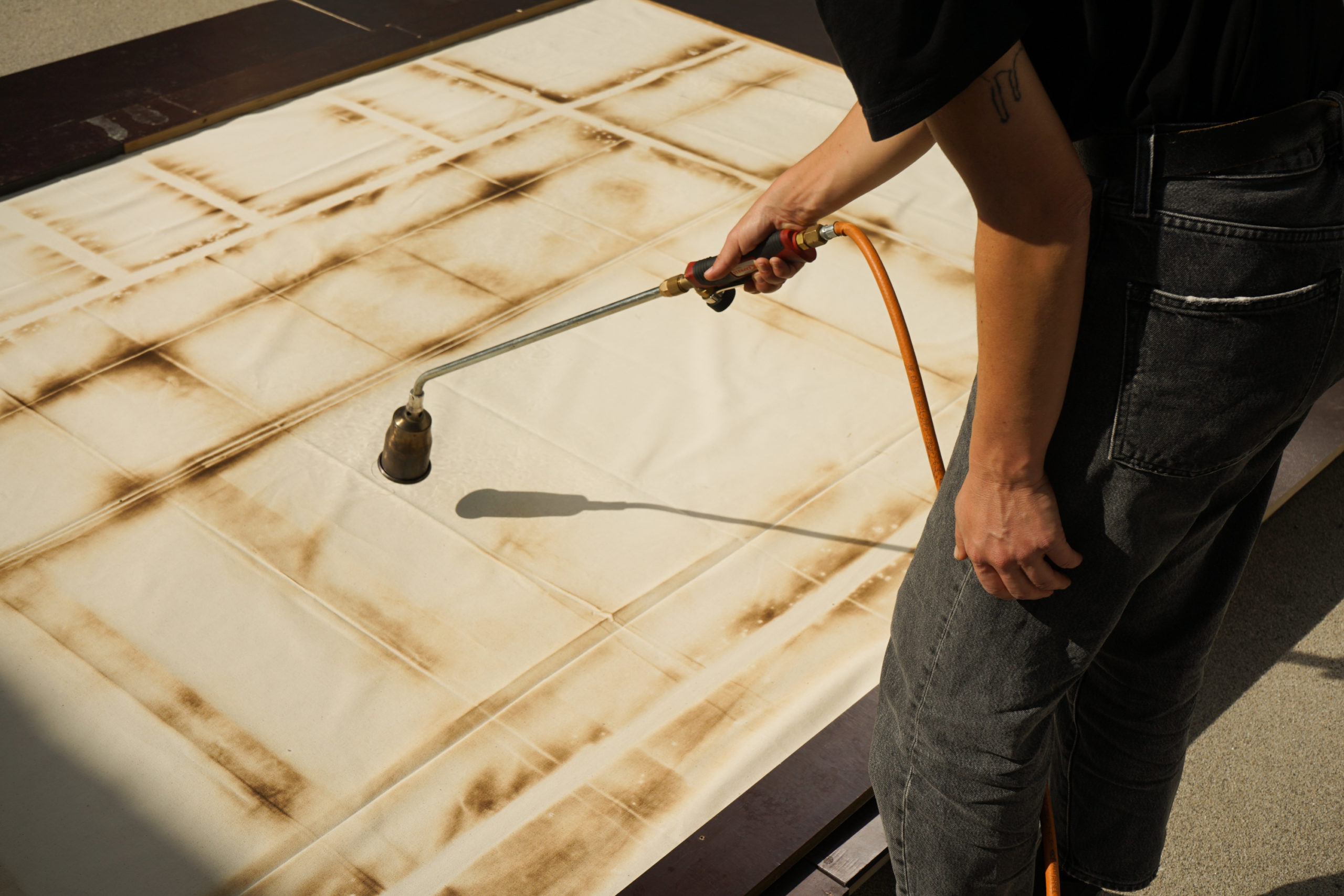
Marion Jdanoff uses a flamethrower to burn structures and shapes into the canvas. Photo: Collectif Etc
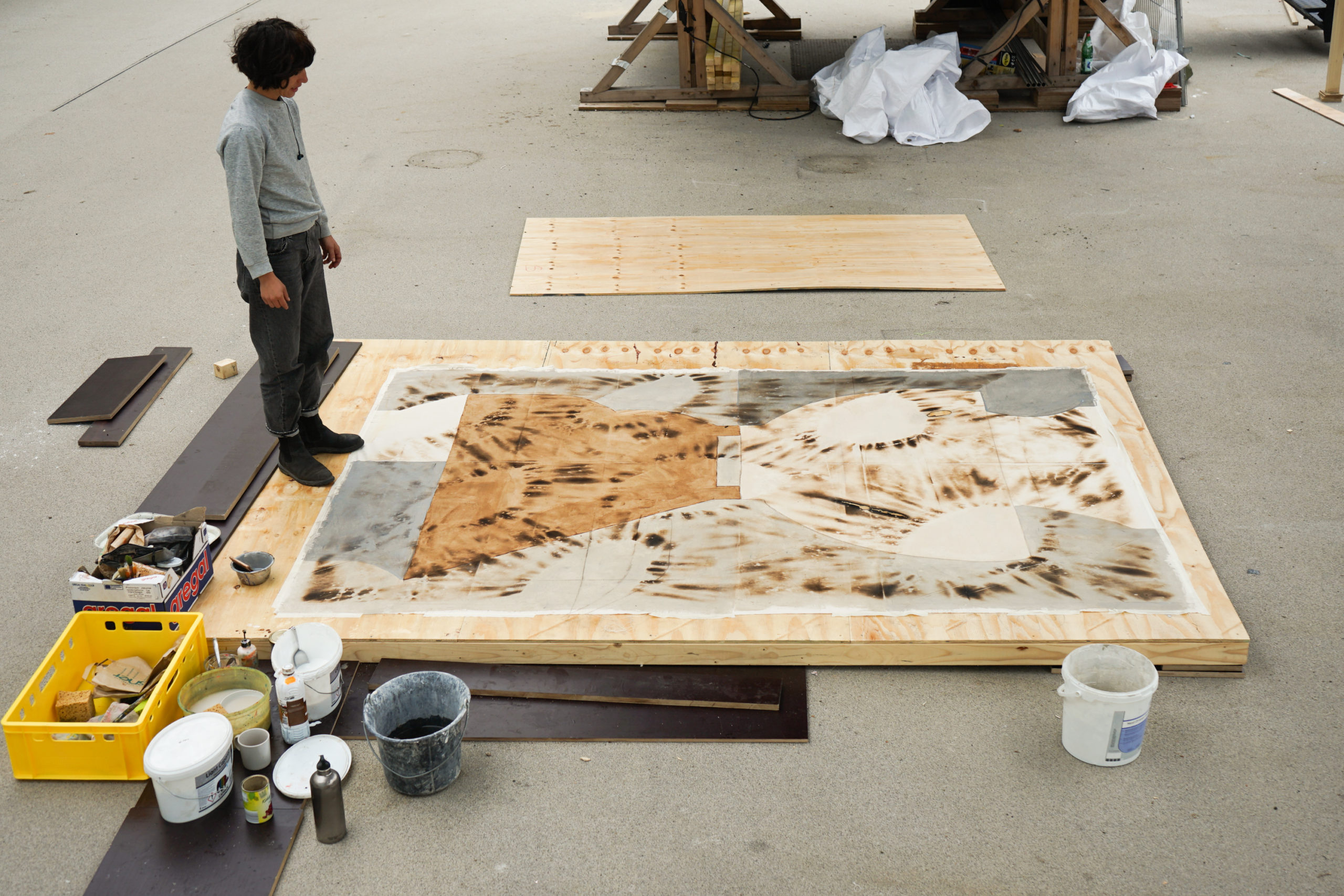
Marion Jdanoff uses large-format drawings as a means of expression and creates figurative and abstract scenes in which fire as an element is not only materially inherent. Photo: Collectif Etc
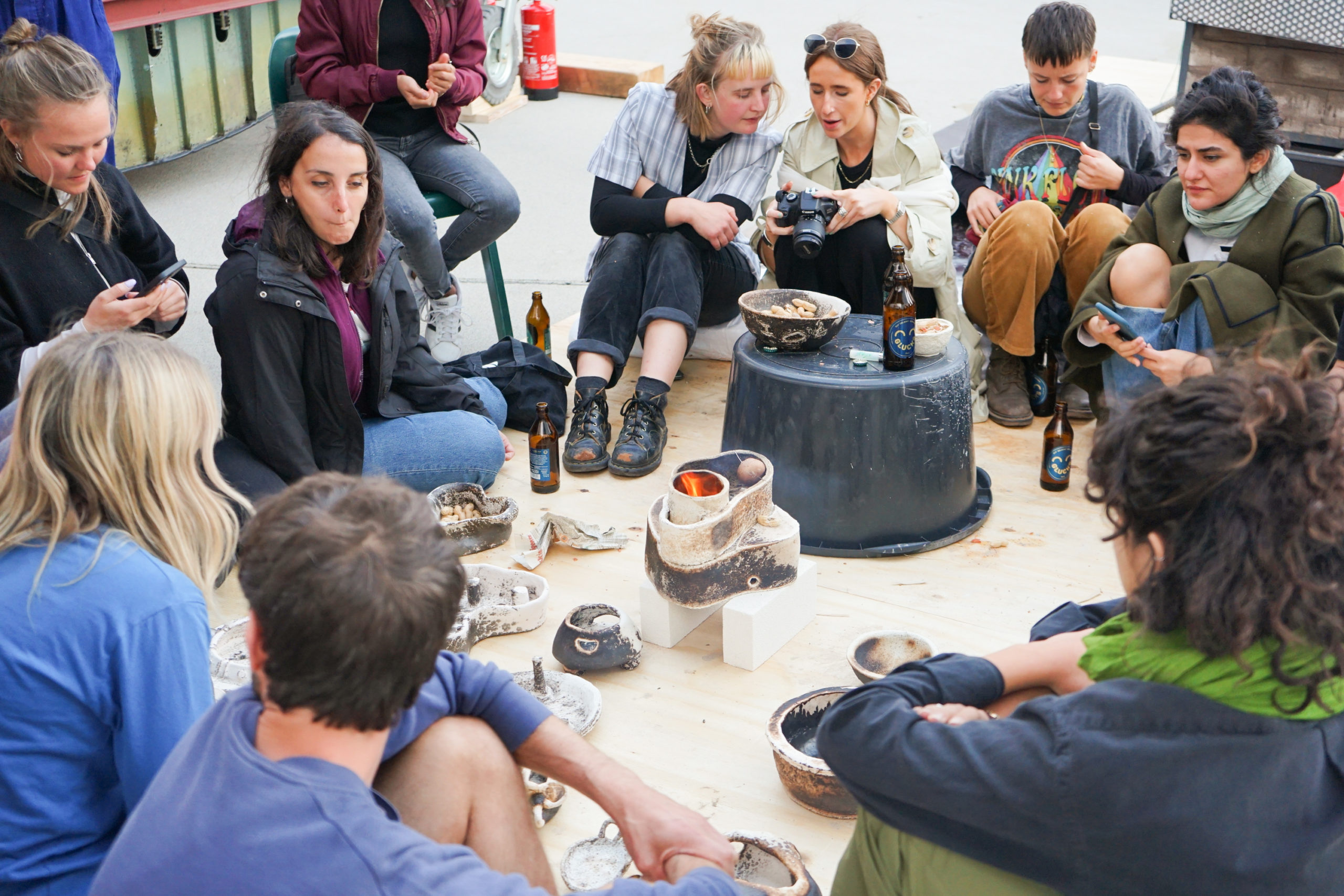
Dress rehearsal for the joint dinner from the table grill. Photo: Collectif Etc
The workshop fanzine is a collage of texts, pictures and drawings by Marion Jdanoff about the element of fire.